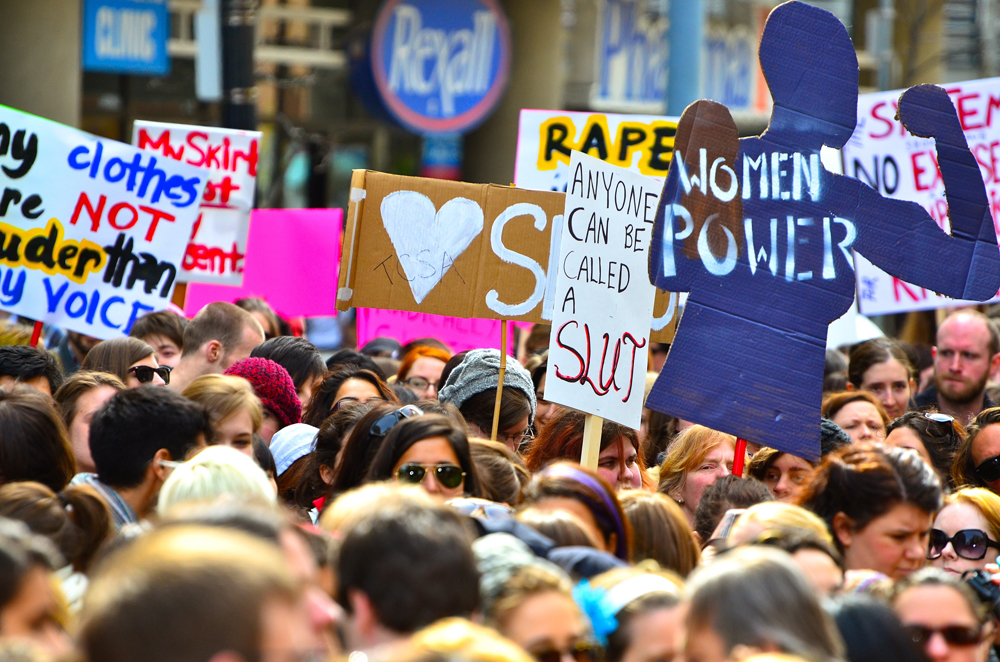
This month is Sexual Assault Awareness Month, as the University president informed us in an e-mail this week, and in the spirit of the season I found myself having to file a Title IX sexual harassment report to the Office of Equality and Diversity, describing how a member of my senior design group targeted staff of this newspaper, in my own home.
Serendipity, right?
For reference: I was a witness, not a victim. That doesn’t make it much better.
I’m happy to report that the Office of Equality and Diversity was very supportive, pleasant to deal with, and made me feel like real progress was being made and I was doing the right thing. They’re good people.
Meanwhile, the academic side of the situation had to be addressed.
Representatives of the College of Engineering (who shall go unnamed) told me that the senior design program wasn’t able to accommodate my desire to no longer work with the accused party because there were only four weeks left in the 9 month program – which is a reason I understood and with which I sympathized; there were two uninvolved people’s grades at stake here after all. The lesson plan had to be respected – there weren’t many other equitable alternatives.
Unfortunately, there was a part two to this explanation… which is why we’re here.
The “professional” thing to do, I was told, would be to finish out the job, despite the “awkward situation.” They also appealed to my previous experience at the Triangle in handling “awkward situations” and, best of all, alluded to the possibility of not getting a degree if I wasn’t able to cooperate and finish the project.
I didn’t really have great responses off the cuff to any of those pearls of wisdom and meekly agreed to keep my head down and keep working on the project.
Now that I’ve had some time to roll those words over in my head I’m frankly pretty offended that in a progressive university in the year of our Lord 2016, I hear that I as a witness to incidents of sexual harassment need to keep working with the harasser in the name of “professionalism” and the incident trivialized to an “awkward situation.”
Handling “awkward situations” (and that was the exact phrasing used) is something we have a lot of experience with here at The Triangle. We’ve misquoted people. We’ve misspelled “Philadelphia” on the front page. We’ve had office romances blow up in our faces. We’ve had folks who work in the same office who just don’t get along. We’ve even had folks just walk out production night and, had to panic to figure out how to finish the issue.
These are “awkward situations.” Sometimes the solution involves retraining, or stricter copy editing, or other systemic solutions. Sometimes it involves merely confronting the person who is in the wrong. Sometimes there isn’t much of a good solution and we have to muddle through it as we go.
A little heavier than “awkward situations” are incidents which directly victimize people: We retracted an article this term which had entirely fabricated quotes, and which got an innocent person fired from their job. That writer was fired from our paper and referred to the University for formal discipline. He will never write here again.
The difference is that “awkward situations” involve a difference of opinion, a different way of going about things, friction between personalities, or maybe a colossal error or mistake, which may or may not be the fault of distinct parties or groups, or even a systemic failure. Sexual harassment involves a distinct person or persons directly victimizing another real human being.
I get it, sexual harassment is not sexual assault, and it’s certainly not rape. However, in an environment where such things are so common – last year’s AAU study confirmed one in four women are sexually assaulted in college and 11 percent are raped – I don’t think it benefits anyone to trivialize sexual misconduct of any form.
“Professionalism” involves holding colleagues to a certain standard of conduct which allows for ethical practice of that profession. I don’t think it involves sweeping our own deep-seated outrage at a person’s conduct towards other people under the rug in the interest of keeping a system working.
Unfortunately, academics, particularly engineering education, is notable for its inflexibility. You can’t walk off the job in academic work– that’ll make you unqualified for your $330,000 piece of paper for another year and make that magic number between 0 and 4 drop a tenth. You have to do the work as ordered and god help you if you have serious ethical and moral qualms about who you’re working with.
(And we wonder why mental health is such a problem in elite universities?)
But I’ll conclude by saying this: people ask why girls don’t get into STEM. They try to entice young girls with scientist Barbies, pastel LEGO, pink train sets. They hold up great female STEM role models at school – any that they can find. The University itself has created the condescendingly-named “Introduce A Girl to Engineering Day” in an attempt to attract women to STEM programs.
All I can say is that once you’ve heard the word “professionalism” used to explain away your qualms about witnessing a colleague sexually harassing your friends in front of your face – you start to understand that the reason for male-dominated STEM fields might be a little more deep-seated than a simple lack of interest in math and sciences.

